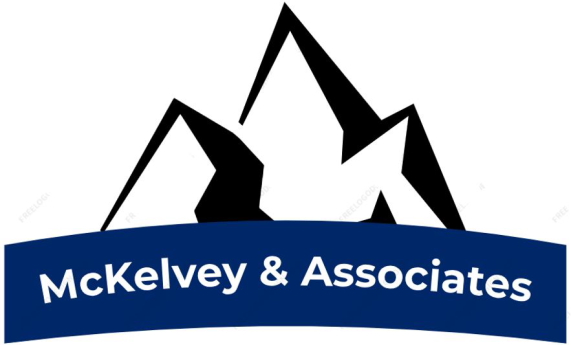Year-End Tax & Accounting for S Corp Owners
For an owner of an S Corporation (S Corp), closing out the year with organized and up-to-date records is crucial for both tax compliance and effective business management. Below are key tax and accounting activities to focus on to ensure everything is in order:
1. Review Financial Statements
- Income Statement (Profit & Loss): Make sure your income statement reflects all revenue and expenses accurately for the year.
- Balance Sheet: Ensure the balance sheet is up to date, with all assets, liabilities, and equity properly recorded.
- Cash Flow Statement: Review cash inflows and outflows to understand your financial position and liquidity.
2. Reconcile Bank Accounts
- Ensure all bank accounts are reconciled by matching your bank statements to your accounting records. This ensures accuracy in your financial statements.
- Verify that any outstanding checks, deposits, or transactions are accounted for and matched properly.
3. Ensure Accurate Payroll Records
- Employee Payroll: Ensure all wages, withholdings (federal, state, Social Security, Medicare), and benefits have been processed correctly.
- Owner’s Compensation: As an S Corp owner, you must ensure that your salary is reasonable and reported on your W-2.
- Payroll Tax Forms: Verify that all payroll tax deposits have been made and prepare for filing Form 941 (quarterly) or Form 944 (annually), as applicable.
4. Review Owner’s Draws and Distributions
- Ensure any owner’s draws or distributions are properly documented. These are not considered salary but must be accurately recorded to prevent issues during tax filing.
- Maintain clear records of the owner’s compensation, distinguishing between salary and distributions.
5. Ensure Proper Classification of Expenses
- Ensure that all business expenses are properly classified. This includes:
- Deductible business expenses: Meals, supplies, equipment, etc.
- Non-deductible expenses: Personal expenses that may have been mixed with business expenses.
- Consider reviewing your general ledger to confirm everything is categorized correctly.
6. Review S Corp Election and Status
- Confirm that your S Corp election is active and has not expired or been inadvertently revoked. This can be checked with the IRS and is important to ensure your S Corp benefits remain intact.
7. Tax-Deferred Contributions
- Ensure all contributions to retirement plans, like a 401(k) or SEP IRA, are properly recorded.
- If applicable, make sure any deferred tax contributions are in line with the limits.
8. Review Estimated Tax Payments
- Ensure that estimated tax payments (if required) are up to date and have been made on time throughout the year to avoid underpayment penalties.
- The S Corp owner is responsible for paying self-employment taxes on income distributed, so keeping up with these payments is crucial.
9. Prepare for Year-End Tax Reporting
- Form 1120S (U.S. Income Tax Return for an S Corporation): Gather all the necessary data to prepare the S Corp tax return. This includes details of income, expenses, deductions, and shareholder distributions.
- Schedule K-1 (Shareholder’s Share of Income, Deductions, and Credits): This form reports the owner’s share of the S Corp’s income, deductions, and credits. Make sure this is prepared accurately for the owner’s tax filings.
- Other Tax Forms: If applicable, gather any other forms such as 1099s for contractors or other relevant documents.
10. Review Depreciation and Amortization
- Review assets purchased during the year to ensure they are being depreciated correctly (via IRS guidelines or Section 179 deductions).
- Double-check that business property and equipment are recorded and that depreciation schedules are accurate.
11. Assess Tax Strategies and Planning
- Consult with a tax professional to ensure you are maximizing deductions and credits available to S Corps.
- Discuss potential tax strategies for minimizing liabilities for both the corporation and the owner, including options like deferring income or accelerating expenses if applicable.
12. Inventory Management (if applicable)
- If your S Corp holds inventory, make sure it is valued correctly at year-end.
- Review and update your inventory records and adjust any discrepancies.
13. Review Contracts and Agreements
- Ensure all contracts (leases, service agreements, etc.) are up to date and that any changes are properly reflected in your financial records.
- Review any long-term liabilities (loans or debts) to confirm payment schedules and balances.
14. Prepare for 1099 Reporting
- If you hired independent contractors, ensure that 1099 forms are prepared and ready for distribution by January 31st.
- Ensure that you have accurate contact details and payment records for each contractor.
15. Evaluate Personal vs. Business Expenses
- Review and distinguish between personal and business expenses to avoid co-mingling funds. This is critical for maintaining the S Corp status and ensuring proper tax treatment.
By staying organized and proactively handling these activities, you can ensure that your S Corp is in compliance, that your financials are clean, and that your tax filings are completed without issues. Consulting with a professional accountant or tax advisor can further help you navigate year-end tasks and tax planning.
If you’re looking for ways to save on taxes and build wealth, our team of experienced CPAs and investment advisors can help. We specialize in strategies tailored to your unique financial situation, ensuring you maximize savings and keep more of what you earn. Don’t leave money on the table—reach out to us today at 970-949-1015 or hello@mckelveyinc.com to learn how we can guide you toward greater financial success.
